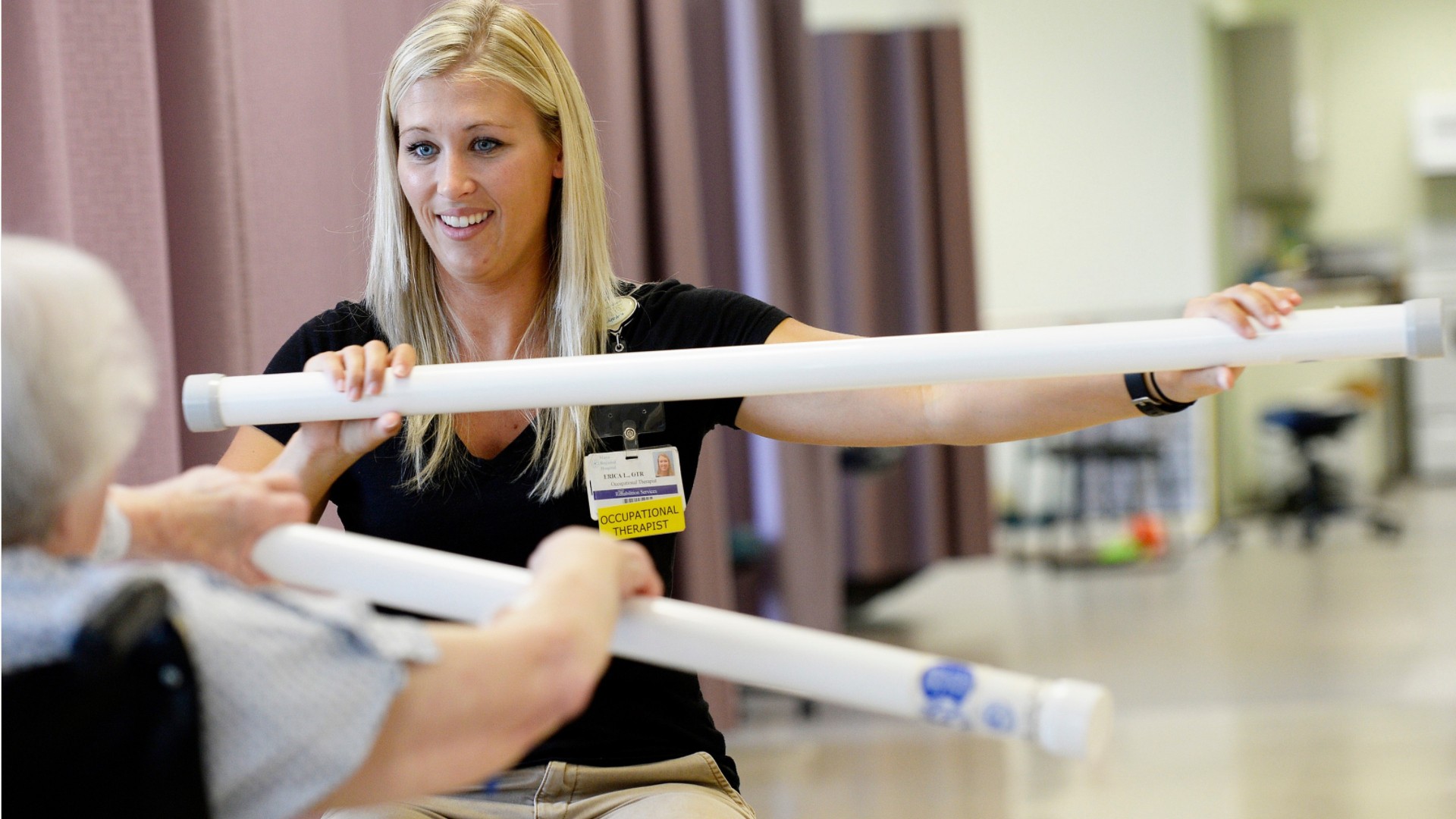Occupational Therapists
Certified Hand Therapist (CHT), Occupational Therapist (OT), Pediatric Occupational Therapist (Pediatric OT), Registered Occupational Therapist (OTR)
 Select a military branch to see samples.
Select a military branch to see samples.
Occupational Therapist; Physical Medicine; Physical Medicine Apprentice; Physical Medicine Craftsman; Physical Medicine Craftsman, Orthotic; Physical Medicine Helper, Orthotic; Physical Medicine Journeyman; Physical Medicine Journeyman, Orthotic; Physical Medicine Superintendent; Physical Therapist
Dietitian; Medical Specialist Corps Officer; Occupational Therapy; Occupational Therapy Specialist; Physiatrist; Physical Therapy; Physical Therapy Specialist; Physician Assistant; Specialist Allied Operations
No similar titles were found.
No similar titles were found.
Occupational Therapist; Occupational Therapy Assistant; Physical Therapy Technician
Occupational Therapist
What they do:
Assess, plan, and organize rehabilitative programs that help build or restore vocational, homemaking, and daily living skills, as well as general independence, to persons with disabilities or developmental delays. Use therapeutic techniques, adapt the individual's environment, teach skills, and modify specific tasks that present barriers to the individual.
On the job, you would:
- Test and evaluate patients' physical and mental abilities and analyze medical data to determine realistic rehabilitation goals for patients.
- Complete and maintain necessary records.
- Plan, organize, and conduct occupational therapy programs in hospital, institutional, or community settings to help rehabilitate persons with disabilities because of illness, injury or psychological or developmental problems.
Knowledge
Health
- therapy and counseling
- medicine and dentistry
Math and Science
- psychology
- biology
Business
- customer service
Arts and Humanities
- English language
Skills
Basic Skills
- keeping track of how well people and/or groups are doing in order to make improvements
- listening to others, not interrupting, and asking good questions
Social
- looking for ways to help people
- teaching people how to do something
People and Technology Systems
- thinking about the pros and cons of different options and picking the best one
- figuring out how a system should work and how changes in the future will affect it
Abilities
Verbal
- communicate by speaking
- communicate by writing
Ideas and Logic
- make general rules or come up with answers from lots of detailed information
- notice when problems happen
Attention
- pay attention to something without being distracted
Personality
People interested in this work like activities that include helping people, teaching, and talking.
They do well at jobs that need:
- Sincerity
- Optimism
- Adaptability
- Perseverance
- Empathy
- Social Orientation
Technology
You might use software like this on the job:
Medical software
- Bizmatics PrognoCIS EMR
- eClinicalWorks EHR software
Computer based training software
- Text reader software
- Text to speech software
Word processing software
- Crick Software Clicker 4
- Microsoft Word
Education
Education: (rated 5 of 5)
master's degree or
bachelor's degree
usually needed
bachelor's degree
usually needed
Job Outlook
Bright
New job opportunities are very likely in the future.
Explore More
- Occupational Therapy Aides
- Occupational Therapy Assistants
- Physical Medicine & Rehabilitation Physicians
- Physical Therapist Assistants
- Physical Therapists
You might like a career in one of these industries:
See more details at O*NET OnLine about Occupational Therapists.





